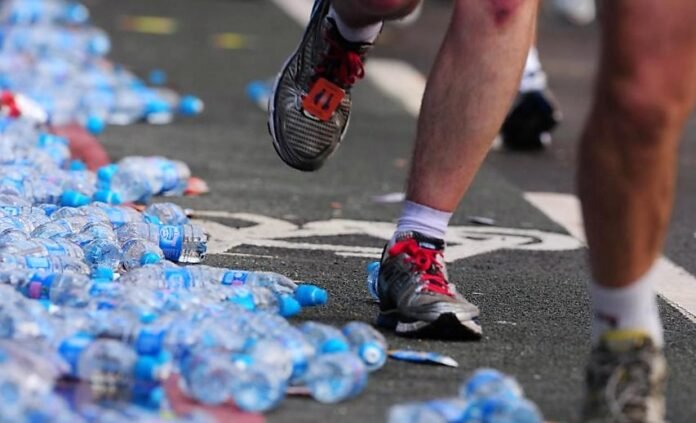The organizers of the 2023 TCS London Marathon have set out to revolutionize the environmental impact of the event, as the race falls on the third day of an Extinction Rebellion demonstration. The marathon anticipates a turnout of at least 45,000 participants, and the organizers aim to attain net zero carbon emissions by 2024, and surpass this by eliminating more carbon than it emits through all event activities by 2025.
Sustainability Efforts
London Marathon Events (LME) is committed to reducing the ecological footprint of its events, which encompasses other high-profile races such as the Brighton Marathon, The Big Half, and more. LME is taking various steps to reduce the environmental impact of the marathon.
Eco-Friendly Clothing
Upon completing the marathon, participants are presented with a 100% recycled polyester New Balance finisher T-shirt. Alternatively, participants could opt-out of receiving a T-shirt and plant a tree instead, through the innovative Trees not Tees initiative. The marathon medal’s ribbon is made of recycled materials, while the goody bag given out after the event is made of sugar cane and is recyclable.
Waste Management
Clothing discarded at the start is collected and repurposed or recycled. Individuals are encouraged to carry their own drinks to reduce the requirement for plastic bottles to be distributed. Those who receive a bottle of water during the race are advised to ‘Drink, Drain, Drop’ to ensure that the recycled plastic bottle can be collected and returned to Buxton for recycling. Lucozade Sport is served in compostable cups to individuals who wish to consume an energy drink.
Fuel and Mile Markers
Generators and baggage vehicles are fueled by Hydrotreated Vegetable Oil (HVO), which has significantly lower carbon and particulate emissions than diesel. The mile markers used on the 26.2-mile route are reusable and were fashioned in 2022 from event waste and recycled ocean plastic.
Food Waste
Excess food and drink from the event are given to The Felix Project, a charity that feeds nearly 1,000 frontline charities, primary schools, and holiday programs to help nourish local communities.
Carbon Levy
The event collects a £26 carbon levy from international participants to fund carbon elimination and offsetting initiatives.
Digital Technology
London Marathon Events has initiated the use of TCS’s ReScore app, which was created for the Council for Responsible Sport. The app enables LME to quantify the environmental and social impact of the marathon, and to certify, report, and validate against sustainability criteria established by the council. LME is also partnering with Green Element, a specialist carbon consultancy, to generate more precise carbon emission estimates and to establish short-term targets and action plans to reduce them.
Conclusion
The organizers of the TCS London Marathon are dedicated to maximizing their social impact and minimizing the ecological impact of their events. They have made substantial strides in sustainability, but they recognize that there is still much more to accomplish. Council for Responsible Sport board member Kevin Phelan lauds LME for its methodical approach and robust leadership in key areas for the industry.











